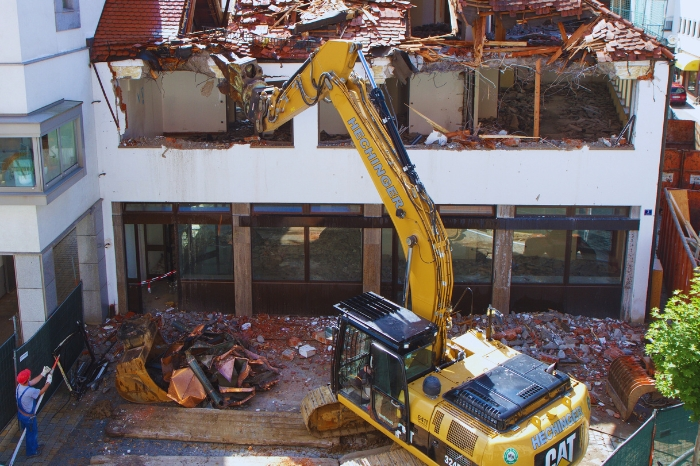Navigating risk and cost in construction and demolition projects is a critical aspect of project success, requiring a balance between safety, efficiency, and budget control. With numerous variables—from structural uncertainties to regulatory compliance and market fluctuations—these projects demand proactive planning, real-time decision-making, and effective risk management strategies to avoid delays, reduce financial loss, and ensure smooth execution from start to finish.
Key Strategies for Managing Time, Budget, and Safety Effectively
1. Understanding the Risks in Construction and Demolition

Construction and demolition projects are inherently risky undertakings, often ranking among the most perilous types of work. According to the National Safety Council, these projects are associated with a high level of danger due to the nature of the tasks involved. The complexity of coordinating heavy machinery, managing a large workforce, and addressing numerous safety hazards can no doubt amplify risks. Ensuring adequate safety measures and training programs are crucial for minimizing accidents and injuries on-site. Additionally, having comprehensive risk assessment and management strategies can play a pivotal role in safeguarding worker safety.
It’s imperative for project managers and contractors to stay informed about potential hazards and employ proactive measures. Regular safety audits and compliance with regulations contribute significantly to creating a safer workplace environment. Workers should be equipped with necessary personal protective equipment and trained to handle emergencies effectively.
Implementing a culture of safety can go a long way in reducing the risks associated with construction and demolition activities. By fostering open communication and encouraging the reporting of safety concerns, projects can be executed in a safer manner.
An additional aspect of managing risks in these projects includes understanding the vulnerabilities that come with variances in site conditions and weather patterns. These factors can influence project timelines and pose further safety challenges. Being prepared to adapt to unforeseen circumstances and having contingency plans in place can mitigate potential disruptions.
Collaboration with safety experts and continuous monitoring of work progress ensures that safety remains at the forefront. Ultimately, prioritizing risk management in construction and demolition projects not only protects workers but also contributes to the successful completion of the project.
2. Managing Costs in Construction and Demolition Projects
Cost management is a critical component of construction and demolition projects, directly impacting their overall success. According to Dumpsters.com, the national average for renting a dumpster—a key component of waste management—varies widely, with costs between $244 and $928, averaging around $485.
Efficient budgeting and financial planning are essential to managing expenses during these projects. Understanding cost drivers and identifying areas where savings can be achieved without compromising quality or safety is vital. By leveraging technology and innovative construction methods, project managers can streamline processes and reduce unnecessary expenditures.
Detailed project planning that includes cost estimations for labor, materials, equipment, and permits is crucial. Ensuring clear communication among stakeholders helps avoid misunderstandings and costly delays. Regular financial audits and expenditure tracking can keep the project within budget and minimize unforeseen expenses.
Additionally, negotiating favorable terms with suppliers and subcontractors can lead to more competitive pricing. Effective cost control measures ensure not just financial success but also timely project completion.
Incorporating sustainability and waste reduction strategies can also be financially beneficial. Opting for reusable materials and energy-efficient practices can translate into savings in the long run. Implementing recycling programs or utilizing materials with a longer lifespan reduces disposal costs and enhances sustainability. Moreover, staying informed about industry trends and fluctuating market rates can aid in making informed financial decisions. Ultimately, effective cost management encompasses careful planning, resource allocation, and ongoing evaluation to ensure financial efficiency.
3. Project Timelines and Execution Efficiency

Timely execution of construction and demolition projects is essential to meeting project goals and maintaining client satisfaction. According to Home Guide, obtaining the necessary permits and paperwork is a critical step that, once completed, allows the demolition process to take place within two to five days on average. Proper planning and the establishment of realistic timelines help ensure projects are completed promptly. Delays can often result from unforeseen circumstances such as weather disruptions or supply chain issues, emphasizing the need for flexibility and agility in project management.
Clear communication and coordination among various teams involved in the project are vital in maintaining timeline efficiency. Scheduled milestones and regular progress reviews can help in identifying potential issues early and addressing them promptly. Utilizing project management tools and software can aid in tracking progress, assigning tasks, and keeping all stakeholders informed. Efficiency is also achieved by optimizing workflows and adopting practices that reduce downtime and enhance productivity on-site. Addressing potential bottlenecks swiftly is essential to keeping the project on track.




